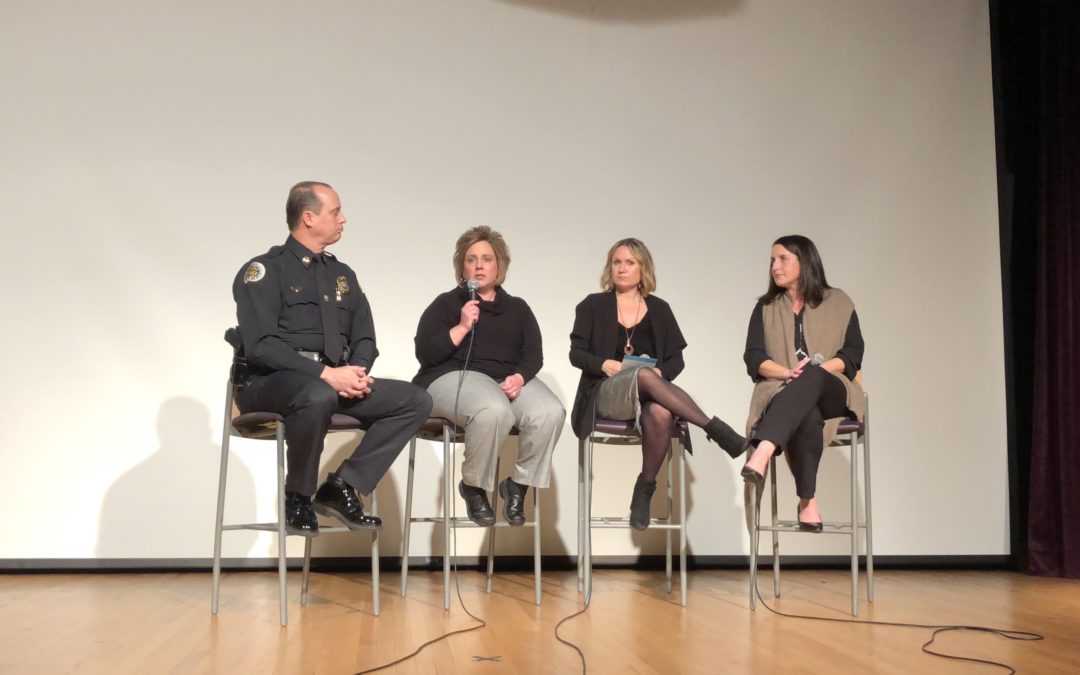Lipscomb’s College of Liberal Arts and Sciences hosted a screening of the HumanDocs film “I Am Evidence” Wednesday night in Shamblin Theater.
The HBO film, directed by Geeta Gandbhir and Trish Adlesic, features the cities of Detroit, Cleveland and Los Angeles. Thousands of untested and unopened rape kits there span decades of sexual crimes.
The documentary showcased testimonies of women in the three cities who were victimized first by rape and then by the system’s neglect. They waited as long as 15 years to see progress on their cases and eventually grew to expect that nothing would happen.
In an effort to rebuild trust in the justice system, city officials have begun offering resources and implementing special teams to ensure that the kits get tested, victims get justice and serial rapists are taken off the streets.
Lauren White, assistant professor of theology in the College of Bible and ministry at Lipscomb, introduced the film.
“This documentary comes to us at a watershed moment in our cultural history and consciousness,” White said. “In view of the recent #metoo movement, our country has been unable to ignore the voices of assault survivors and has had to confront the disturbing evidence of just how pervasive sexual violence against women actually is.”
The event also featured a panelist discussion after the film. The speakers, Ilse Knecht, Rachel Freeman, Captain Harmon Hunsicker and Pam Crues, all help victims of sexual assault in the community of Nashville.
A new crime lab was recently built in Nashville. It focuses on processing backlogged kits and holding offenders accountable.
Captain Harmon Hunsicker in the Forensic Services Division at the Metropolitan Nashville Police Department is hopeful the crime lab will be fully staffed by the end of the year, resulting in proper turn around time for sexual assault cases.
“We have some kits from late 2016, some from 2017. Total we have less than a couple hundred,” Hunsicker said. “Are we were we want to by? No. Are we going to get there in the next few months? I absolutely believe it.”
Junior Rachel Adams shared their thoughts on the documentary and the failure of the system to provide justice to victims.
“It was horrifying how the women were disempowered by the system and that they were ignored and shamed,” said Adams. “You are taught to trust the authority and that if something bad happens there will be justice. The reality is that the people who are supposed to be helping you might be traumatizing you.”
Reflecting the thoughts of several in the audience, junior Lisa Moser voiced her concern for gender inequality and the cycle of sexual violence that plagues this country.
“The backlog is a problem, but I think the bigger problem is the fact that women are not respected in our country,” said Moser. “I think we should focus more on preventative measures and changing people’s mindsets and teaching boys not to commit rape and respect women.”

